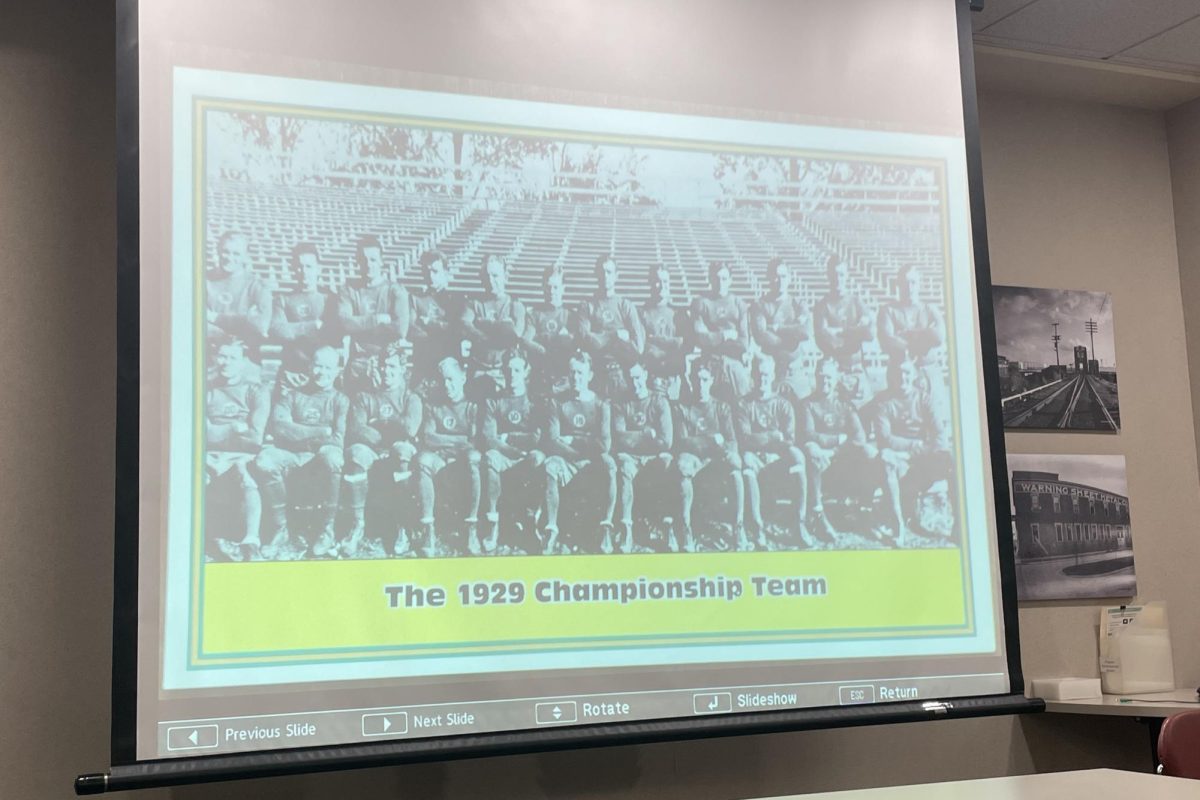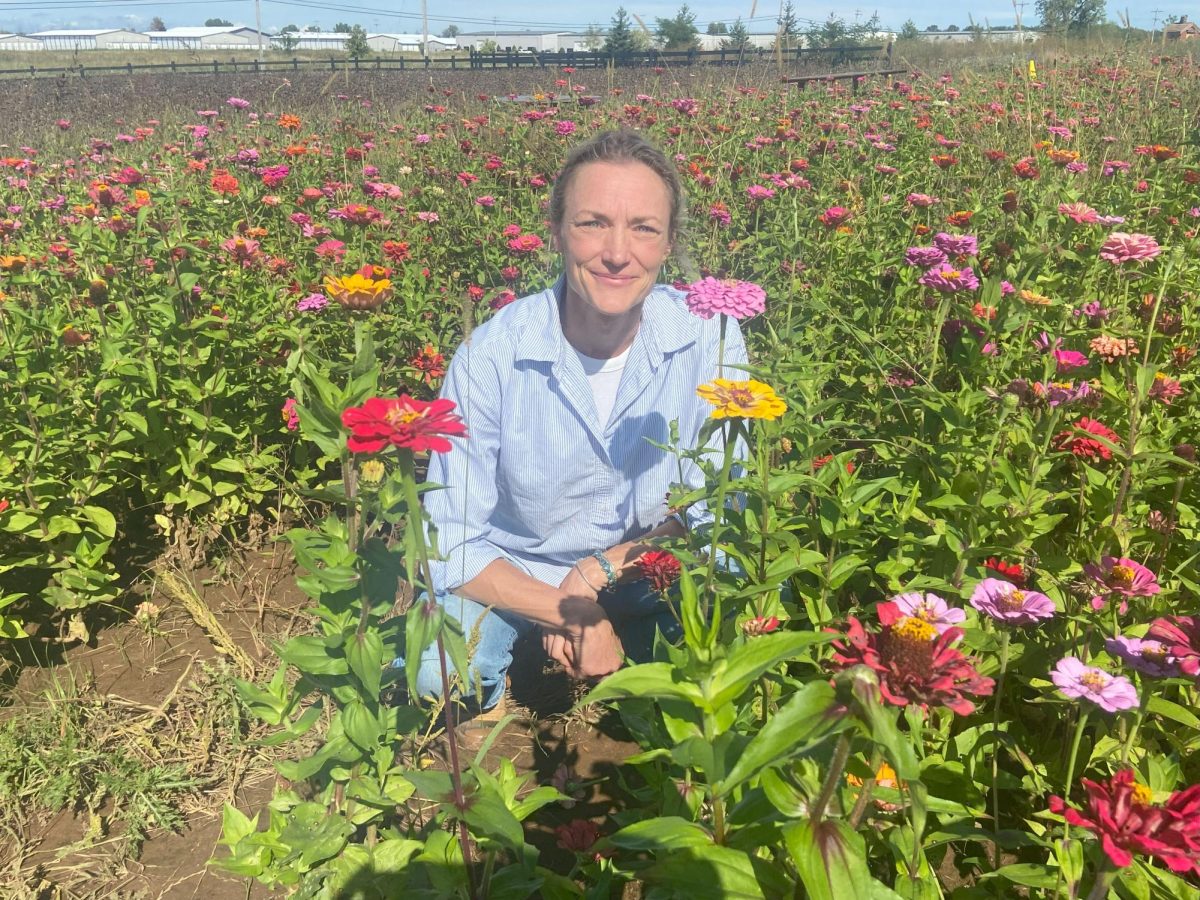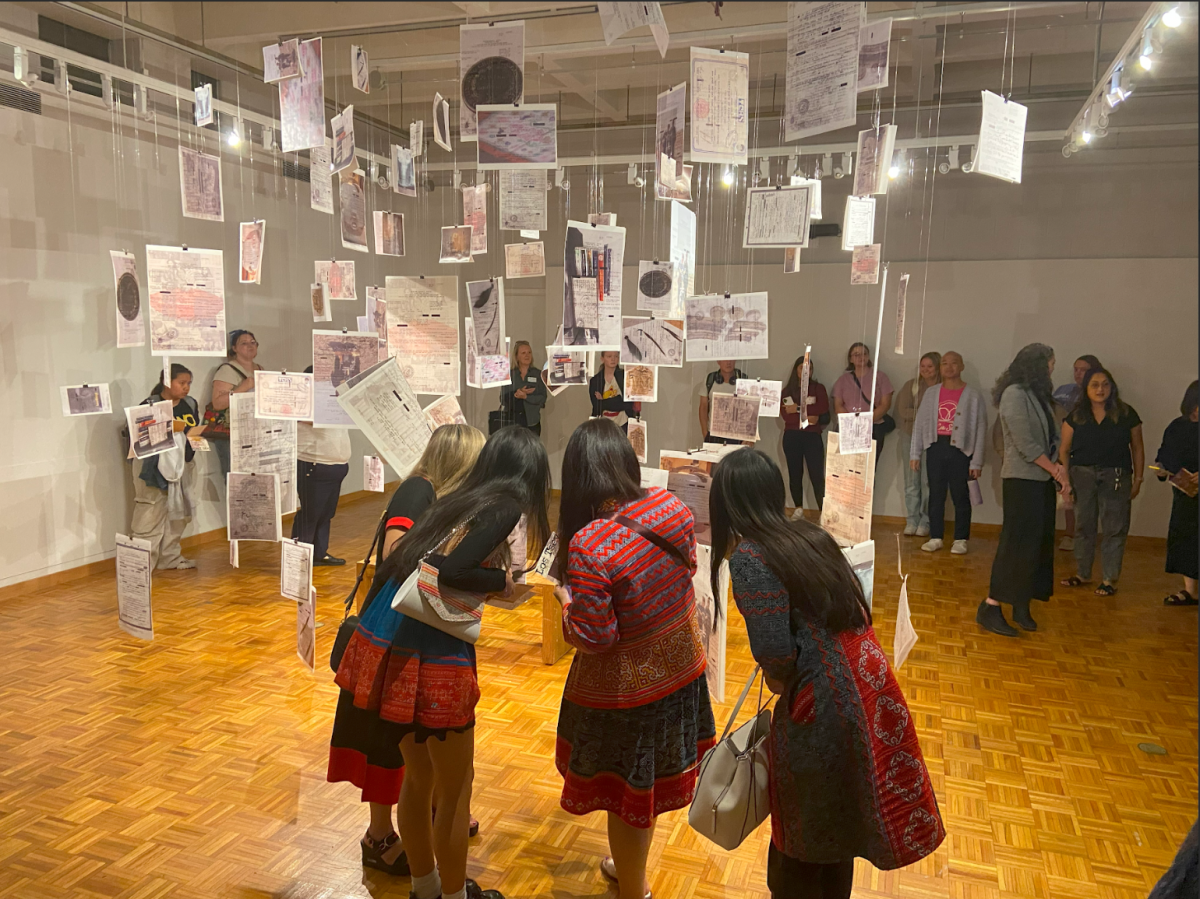Walter Wally Messner will be retiring from UW Oshkoshs music department in July after teaching for 41 years. Messner earned his bachelors and masters degrees in music education at UWO and helped to start the first music recording program in the state in 1974. Messner grew up on a farm in Wisconsin, and his father had high hopes for him to become a farmer. He said his allergies constantly bothered him, so he tried to get out of doing farm work. He found a way to get away from his work by playing instruments. Messner started playing instruments at a young age, including the accordion, and quickly mastered the accordion at age seven and guitar at age 10. After playing music for many years, Messner decided to get his bachelors in music education at UWO in hopes of becoming a band director. While in school, he avidly went to seminars and workshops about recording to help record the Universitys concerts. Since there were no recording classes at the time, this was the only way to learn about audio technology. Upon completing his undergraduate studies, Messner quickly discovered there were no available jobs in local school districts and decided to stay in school. What does any good college student do when there are no jobs?, Messner said. They stay in school. After earning his masters in music education, he started playing as a musician in a house band at a local bar. This bar had many artists who traveled up from Nashville to preform as well. Messner befriended some of the other musicians and they suggested he travel to Nashville because he had talent. One particular musician convinced him to go down to visit for a week to meet other musicians and potential employers. Messner moved to Nashville shortly after and started working on projects. He served as both an in-studio and traveling session musician, as well as an engineer under salary at Glaser Brothers Studio. Messner also freelanced at a few other studios where his skills were needed. During a slow month in the studio, Glaser Brothers sent him to play in a club in Birmingham, Alabama with their house band. If you could imagine the worst, it was worse than that, Messner said. We played 28 days straight in an all-night bar, eight hours a night. Toward the end of that month, Messner received a call from then-Music Department Chairman Roger Dennis, who expressed his interest to start a recording program. Familiar with Messners success in Nashville, Dennis offered him the opportunity to come back to Oshkosh and overlook the creation of the program. Messner looks back on the timing of this offer as destiny. I tend to believe in powers higher than fate, Messner said. Had it not been for the disillusionment [of that gig] I probably would have said no. It was kind of serendipitous that it happened the way it did, and that night I drove straight from Birmingham, Alabama to Wisconsin. Messner began teaching in the fall semester of 1974, starting with guitar lessons for his first five years while he laboriously created the curriculum for Oshkoshs first recording classes. At the time, were added as electives to the music merchandising major currently called the music business major. Then in 1979, the department created the recording technology major, appointing Messner as the director of the program. It was no easy task, and Messner said having the budget and sufficient space to build a proper studio was always a problem. It was a major battle just to get them to rebuild that small space that we have now, Messner said. As the program grew, we needed more space and more space and more space, and never really got it. Messner also talks about how the world of digital recording has presented more of a budget challenge, as technology is progressing exponentially faster than it did in the analog days. An avid car collector and mechanic who has never taken a mechanics class, Messner has a natural talent for independent learning, which is how he has managed to remain well versed in the digital domain as he was, and still is, in the analog domain. Messner has placed students into internships at more than 150 studios in his 41 years on campus. His students have gone on to win Grammy awards and Emmy awards, as well as work with household names like Miranda Lambert. Jack Kertzman, a fall 2011 graduate of the program who is now the Studio Manager and Engineer at the historic Hyde Street Studios in San Francisco, looks back on Messners impact. He was able to take an underfunded recording program and still give me and my classmates the skills we needed to make a career in the industry, Kertzman said. Just being in that studio at UWO, you can feel the hard work he has put in. I cannot thank him enough. Kertzman also said he felt there was a special camaraderie among Messner and his students. I wish I had Wallys golden ears, Kertzman said. He has the kind of discerning ears that only come with a lifetime of working with music. Wally had the perfect attitude for the job. He was a teacher who always made you feel like you are on the same level, preferring to be called Wally rather than Mr. Messner. He was a friend to his students for many years. Messner has not only left a strong impact on students, but also on his fellow music professors. Music Department ChairWoman Alison Shaw said she feels Messner was an essential part of the music department dynamic and hopes to continue down the road he has paved. Wally Messners legacy at UWO represents the very core of what a comprehensive university, such as ours, should do, Shaw said. The best way to honor Wallys legacy now is to continue the fine work he has done here, and to continue to grow the program to reach new heights in the 21st century recording arts field. Wally Messner looked into the future for 41 years as he led the program into its current state and exceptional reputation. Spring 2014 graduate Angie Hayes was a student of Messners. Hayes now lives in Ohio and works at the Cleveland Public Theatre operating and assisting with sound. Hayes said she has the highest respect for Messner as a professor and thinks he was the main reason she was successful with her recording education. I think I was able to get a better education because I was blessed with a professor who took me seriously and cared about teaching all of us, Hayes said. Despite all of his success, Messner has been incredibly humble, attributing his career to Dennis. Roger was really quite a forward thinking person, Messner said. He started a music therapy program in the early sixties when there were not many schools that had that. He started the music business program in the early seventies and basically those are the things that kept the department alive. When asked what his greatest accomplishments or successes have been, he didnt take much credit. Maybe the program probably would have survived as well with somebody else at the helm, who knows, Messner said. Whether it is a success or not, just knowing that I did the best I could Leaving and knowing that I am not going to look back and say If I had only done this, if I had only done that. I hope people carry that attitude into all parts of their life. Do the best you can do whatever it is you are doing. The Recording Technology program will be taken over by Messners former student Nathan Edwards, who is currently the assistant professor of Audio Engineering at Dakota State University in Madison, South Dakota.
Categories:
Music professor retires after 41 years
April 29, 2015
0







